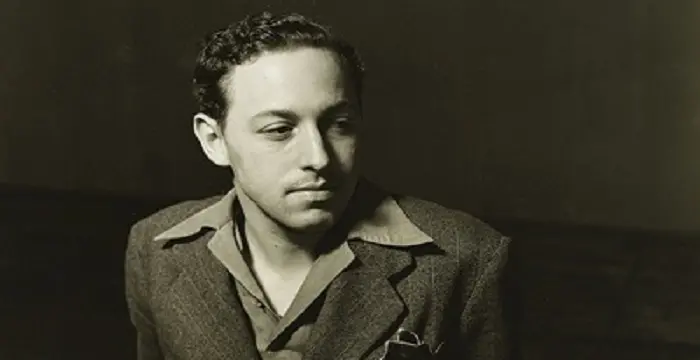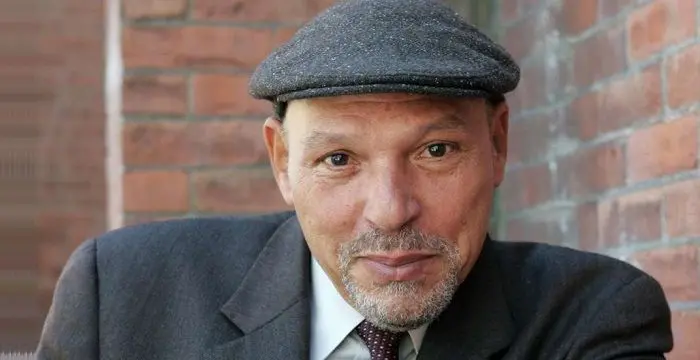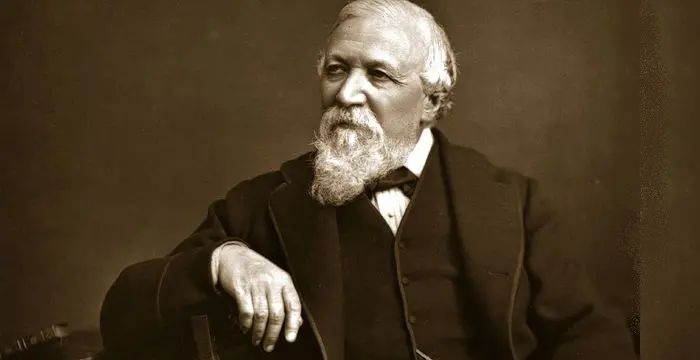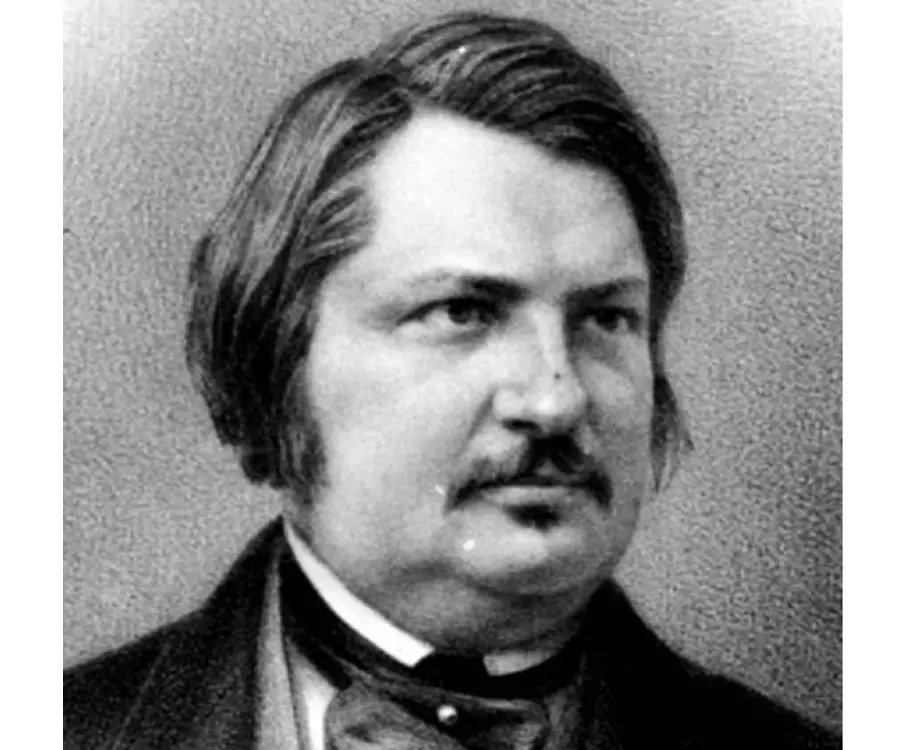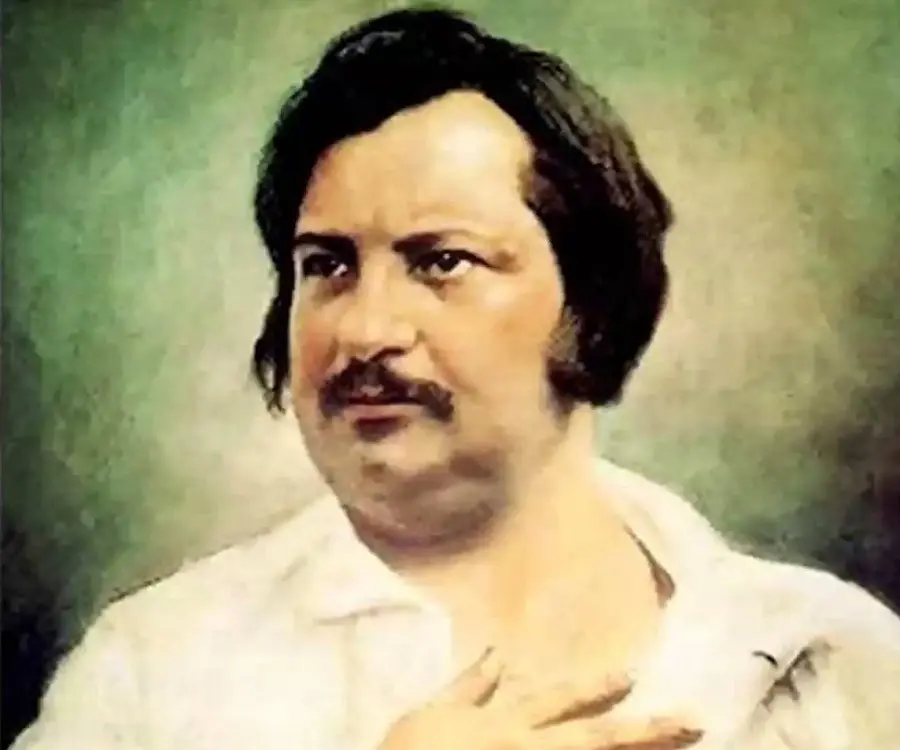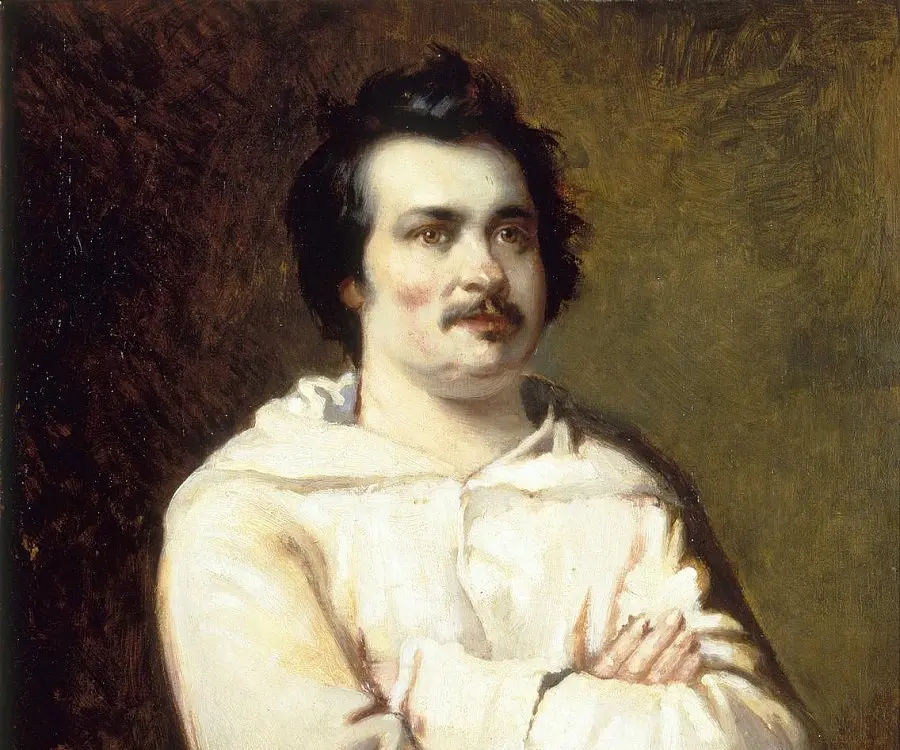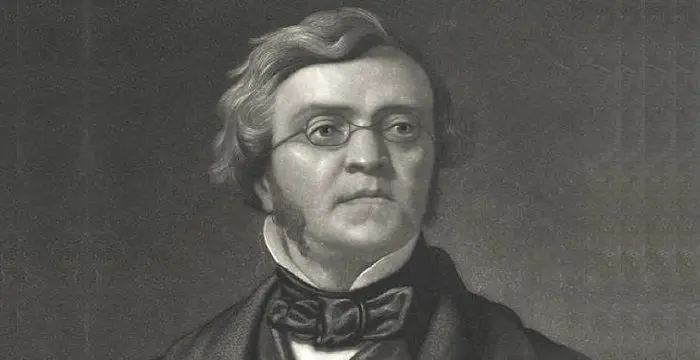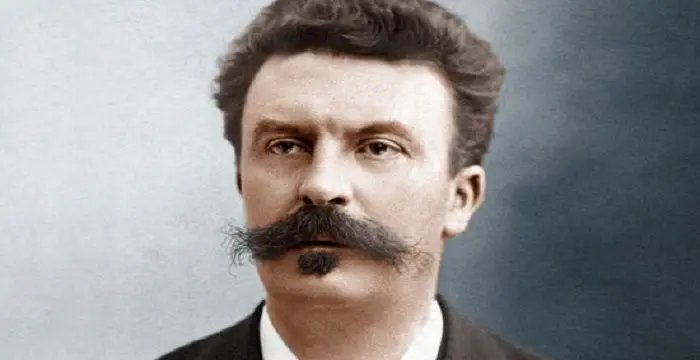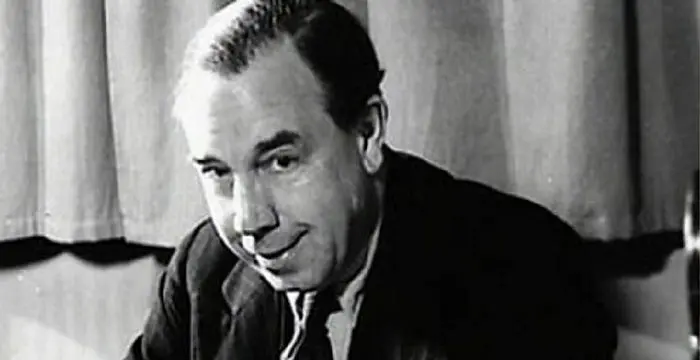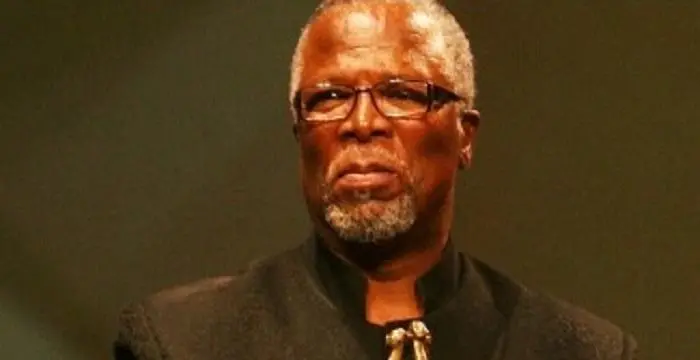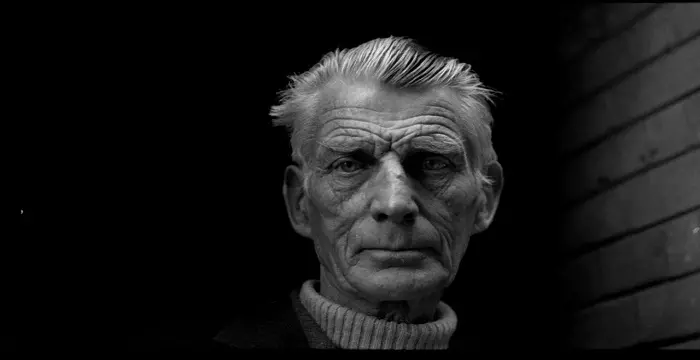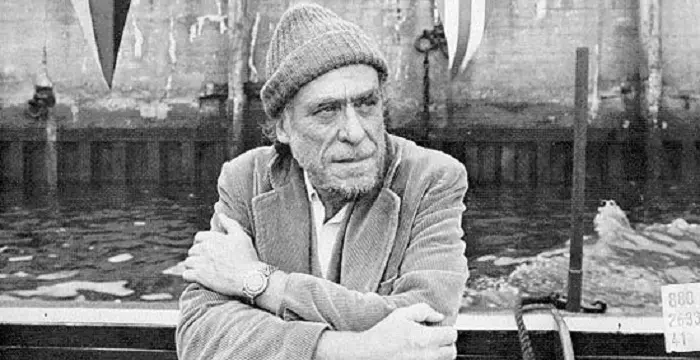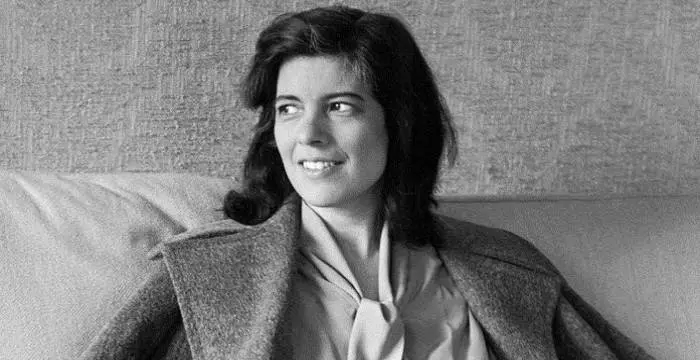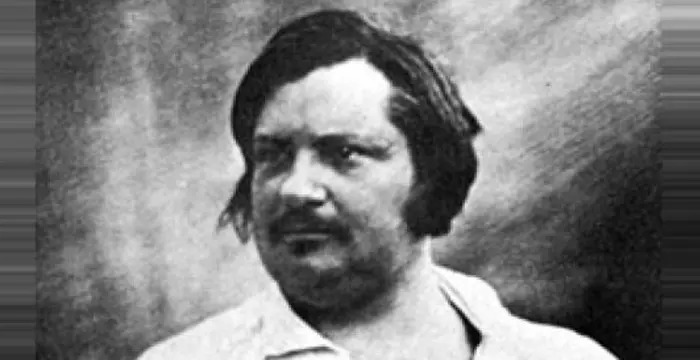
Honoré de Balzac - Novelists, Family and Childhood
Honoré de Balzac's Personal Details
Honoré de Balzac was a French novelist and playwright
| Information | Detail |
|---|---|
| Birthday | May 20, 1799 |
| Died on | August 18, 1850 |
| Nationality | French |
| Famous | Writers, Novelists, Playwrights, Short Story Writers, Novelists, Playwrights |
| Spouses | Ewelina Hańska |
| Siblings | Henry-François Balzac, Laure Balzac, Laurence Balzac, Louis-Daniel Balzac |
| Known as | Honoré Balzac |
| Birth Place | Tours |
| Religion | Catholicism |
| Gender | Male |
| Father | Bernard-François Balssa |
| Mother | Anne-Charlotte-Laure Sallambier |
| Sun Sign | Taurus |
| Born in | Tours |
| Famous as | French Novelist and Playwright |
| Died at Age | 51 |
// Famous Playwrights
Tennessee Williams
Tennessee Williams was one of the greatest playwrights of the 20th century. This biography of Tennessee Williams provides detailed information about his childhood, life, achievements, works and timeline.
August Wilson
August Wilson is a Pulitzer Prize winning play writer, who is known to have authored the ten play series, The Pittsburgh Cycle. Read this biography to learn more about his childhood, profile, life and timeline.
Robert Browning
Robert Browning was a famous English poet and playwright. Check out this biography to know about his childhood, family life, achievements and other facts about his life.
Honoré de Balzac's photo
Who is Honoré de Balzac?
Honoré de Balzac, the French novelist and playwright is best known for his magnum opus titled, ‘La Comédie humaine’, a sequence of short stories and novels which offers an insight into French life in the years after the fall of Napoleon Bonaparte. His independent thinking and willful nature ensured that his life was a permanent struggle. He was a law intern but rejected the profession, while his attempts to succeed as publisher, printer, businessman, critic, and politician failed. La Comédie humaine reflects his real-life difficulties, and includes incidences from his personal experience. He wanted his characters to be real, a mix of good and bad and very human. They came from every conceivable background. He painted places in a natural way which heightened realism. Balzac is, thus, regarded as one of the founders of realism in European literature. His writing influenced many subsequent novelists such as Marcel Proust, Émile Zola, Charles Dickens, Edgar Allan Poe, Fyodor Dostoyevsky, Gustave Flaubert, William Faulkner, Jack Kerouac, and Italo Calvino, and philosophers such as Friedrich Engels and Karl Marx. Many of Balzac's works have been made into or have inspired films, and they are a continuing source of inspiration for writers, filmmakers and critics.
// Famous Novelists
William Makepeace Thackeray
William Thackeray was an English novelist and satirist. Read this brief biography to find more on his life & timeline.
Guy de Maupassant
Guy de Maupassant was an acclaimed French short story writer and novelist. This biography provides detailed information about his childhood, life, career, achievements and timeline.
J. B. Priestley
J.B. Priestley was a famous English novelist, broadcaster and playwright. Go through this biography to learn more about his profile, childhood, life and timeline.
Childhood & Early Life
Balzac was born on 20th May 1799 to Bernard-François who struggled to achieve respectability and later became the Secretary to the King's Council and a Freemason, and Anne-Charlotte-Laure Sallambier who hailed from a family of wealthy haberdashers in Paris.
Honoré, named after Saint Honoré of Amiens, was the second child born to the Balzacs. His elder brother was Louis-Daniel who survived only a month and his other siblings were Laure, Laurence and Henry-François.
At ten, he was sent to the Oratorio grammar school in Vendôme, where he studied for seven years. He found learning by rote difficult but was interested in reading books.
In1816 at Sorbonne, he studied under three famous professors. François Guizot, a later Prime Minister, taught Modern History, Abel-François Villemain taught French and classical literature, while Victor Cousin's encouraged his students to think independently.
Career
Balzac’s father persuaded him to follow him into the law. For three years he was an apprentice in family-friend, Victor Passez’s office but turned down Passez’s offer to make him his successor in 1819.
His first literary venture was a libretto for a comic opera called Le Corsaire, based on Lord Byron's The Corsair. Realizing he would have trouble finding a composer, however, he turned to other pursuits.
In 1820, Balzac completed the five-act verse tragedy, Cromwell. It was reviewed by Andrieux, his sister’s tutor. On the manuscript, Andrieux wrote: "The author should do anything he likes, but not literature”.
He wrote short stories which were sold to publishers by Auguste Lepoitevin in 1821. In the next five years later, he wrote nine novels, all published under pseudonyms often in collaboration with other writers.
His 1822 novel, Vicaire des Ardennes caused an outrage and was banned for its depiction of nearly-incestuous relations of a married priest—attributed to a 'Horace de Saint-Aubin'.
He wrote two pamphlets in support of primogeniture, the right, of the firstborn child to inherit the family estate, and the Society of Jesus, a male religious congregation of the Roman Catholic Church.
In the late 1820s, he tried several business ventures .His first venture, a publishing enterprise failed miserably, while his attempt to build a printing business failed due to lack of capital.
Les Chouans, published in 1829, established him as an author. It was a tale of love gone wrong amid the Chouan royalist forces. Although a crown loyalist, he portrayed counter-revolutionaries in a sympathetic light.
He wrote El Verdugo in 1829 about a 30-year-old man who kills his father. This was the first work signed "Honoré de Balzac", a symbolic inheritance as his father had died around that time.
La Peau de chagrin, his 1831 novel tells the story of a young man who finds a magic piece of shagreen. It uses fantastic elements to portray the excesses of bourgeois materialism.
Following the July Revolution, supporting Charles' House of Bourbon, he wanted to become a mediator between the king and the insurgents. But after a near-fatal accident in 1832, he decided not to stand for election.
Le PèreGoriot or Old Father Goriot, in1835, his next success, transposes the story of King Lear to Paris. The centrality of a father in this novel has autobiographical overtones.
Illusions Perdues or Lost Illusions is an 1843 novel that has Lucien de Rubempré, a young aspiring poet, trapped in a mire of social contradictions reflective of the writer’s own failure as a journalist.
Splendeurs et misères des courtisanes or The Harlot High and Low, in 1847, continues Lucien's story. He is trapped by the Abbé Herrera (Vautrin) in an intricate and ruinous plan to regain social status.
Le Cousin Pons of 1847, one of the last of the 94 works Comédie humaine, is set entirely in Paris, where according to Balzac, “the extremes of good and evil are to be found”.
La Cousine Bette or Cousin Bette is an 1846 novel about an unmarried vengeful and bitter middle-aged woman. Considered his last great work, he uses realist details with a panorama of characters.
Major Works
In 1832, Balzac conceived his greatest work, ‘La Comédie humaine’ or The Human Comedy, a multi-volume collection of interlinked novels and stories depicting French society, published in his lifetime under his own name.
Eugénie Grandet, his first best-selling 1833 novel was about a tale of a young lady who inherits her father's miserliness. It was critically acclaimed for its simple writing, but dynamic and complex individuals.
Personal Life & Legacy
Balzac corresponded with Ewelina Hariska, a Polish noblewoman who was already married. Balzac married Ewelina in 1850 but died five months after the wedding.
He was buried at the Cimetière du Père Lachaise in Paris. Writer Victor Hugo served as pallbearer and eulogist at his funeral which was attended by "almost every writer in Paris”
He became the subject of a monumental statue by the French sculptor Auguste Rodin, which stands near the intersection of Boulevard Raspail and Boulevard Montparnasse and also featured in several of his smaller sculptures.
Trivia
This French writer was described by one critic as "the French Dickens" as both novelists' works were often serialized, appearing in installments before publication in book form.
This writer’s prolific output included short stories and journalistic essays and were published both under his own name and using a series of pseudonyms such as Horacio of Saint Aubin, Lord R'hoone and Villague.
// Famous Playwrights
Tennessee Williams
Tennessee Williams was one of the greatest playwrights of the 20th century. This biography of Tennessee Williams provides detailed information about his childhood, life, achievements, works and timeline.
John Kani
John Kani is a South African actor, voice actor, playwright and director. Check out this biography to know about his birthday, childhood, family life, achievements and fun facts about him.
Samuel Beckett
Samuel Beckett was an Irish playwright, novelist, theatre director and poet. This biography profiles his childhood, life, works, achievements and timeline
Honoré de Balzac biography timelines
- // 20th May 1799Balzac was born on 20th May 1799 to Bernard-François who struggled to achieve respectability and later became the Secretary to the King's Council and a Freemason, and Anne-Charlotte-Laure Sallambier who hailed from a family of wealthy haberdashers in Paris.
- // 1816In1816 at Sorbonne, he studied under three famous professors. François Guizot, a later Prime Minister, taught Modern History, Abel-François Villemain taught French and classical literature, while Victor Cousin's encouraged his students to think independently.
- // 1819Balzac’s father persuaded him to follow him into the law. For three years he was an apprentice in family-friend, Victor Passez’s office but turned down Passez’s offer to make him his successor in 1819.
- // 1820In 1820, Balzac completed the five-act verse tragedy, Cromwell. It was reviewed by Andrieux, his sister’s tutor. On the manuscript, Andrieux wrote: "The author should do anything he likes, but not literature”.
- // 1821He wrote short stories which were sold to publishers by Auguste Lepoitevin in 1821. In the next five years later, he wrote nine novels, all published under pseudonyms often in collaboration with other writers.
- // 1822His 1822 novel, Vicaire des Ardennes caused an outrage and was banned for its depiction of nearly-incestuous relations of a married priest—attributed to a 'Horace de Saint-Aubin'.
- // 1829Les Chouans, published in 1829, established him as an author. It was a tale of love gone wrong amid the Chouan royalist forces. Although a crown loyalist, he portrayed counter-revolutionaries in a sympathetic light.
- // 1829He wrote El Verdugo in 1829 about a 30-year-old man who kills his father. This was the first work signed "Honoré de Balzac", a symbolic inheritance as his father had died around that time.
- // 1831La Peau de chagrin, his 1831 novel tells the story of a young man who finds a magic piece of shagreen. It uses fantastic elements to portray the excesses of bourgeois materialism.
- // 1832Following the July Revolution, supporting Charles' House of Bourbon, he wanted to become a mediator between the king and the insurgents. But after a near-fatal accident in 1832, he decided not to stand for election.
- // 1832In 1832, Balzac conceived his greatest work, ‘La Comédie humaine’ or The Human Comedy, a multi-volume collection of interlinked novels and stories depicting French society, published in his lifetime under his own name.
- // 1833Eugénie Grandet, his first best-selling 1833 novel was about a tale of a young lady who inherits her father's miserliness. It was critically acclaimed for its simple writing, but dynamic and complex individuals.
- // 1835Le PèreGoriot or Old Father Goriot, in1835, his next success, transposes the story of King Lear to Paris. The centrality of a father in this novel has autobiographical overtones.
- // 1843Illusions Perdues or Lost Illusions is an 1843 novel that has Lucien de Rubempré, a young aspiring poet, trapped in a mire of social contradictions reflective of the writer’s own failure as a journalist.
- // 1846La Cousine Bette or Cousin Bette is an 1846 novel about an unmarried vengeful and bitter middle-aged woman. Considered his last great work, he uses realist details with a panorama of characters.
- // 1847Splendeurs et misères des courtisanes or The Harlot High and Low, in 1847, continues Lucien's story. He is trapped by the Abbé Herrera (Vautrin) in an intricate and ruinous plan to regain social status.
- // 1847Le Cousin Pons of 1847, one of the last of the 94 works Comédie humaine, is set entirely in Paris, where according to Balzac, “the extremes of good and evil are to be found”.
- // 1850Balzac corresponded with Ewelina Hariska, a Polish noblewoman who was already married. Balzac married Ewelina in 1850 but died five months after the wedding.
// Famous Writers
Joyce Meyer
Joyce Meyer is a Christian author and speaker. This biography provides detailed information about her childhood, life, achievements, works & timeline
Temple Grandin
Temple Grandin is a well-known American writer, autistic activist and animal expert. This biography profiles her childhood, life, achievements, career and timeline
Tennessee Williams
Tennessee Williams was one of the greatest playwrights of the 20th century. This biography of Tennessee Williams provides detailed information about his childhood, life, achievements, works and timeline.
Charles Bukowski
Charles Bukowski was a German-born American novelist, short story writer and poet. With this biography, learn in details about his childhood, life, works, career and timeline
Susan Sontag
Susan Sontag is an American critical essayist, cultural analyst, novelist, political activist, filmmaker and playwright of international repute. Read on to find out more about her childhood, career, profile and timeline.
Suze Orman
Suze Orman is an American television host, financial advisor, author and motivational speaker, famous for her ‘The Suze Orman Show’ on CNBC. This biography profiles her childhood, life, career, works, achievements and timeline.
Honoré de Balzac's FAQ
What is Honoré de Balzac birthday?
Honoré de Balzac was born at 1799-05-20
When was Honoré de Balzac died?
Honoré de Balzac was died at 1850-08-18
Where was Honoré de Balzac died?
Honoré de Balzac was died in Paris
Which age was Honoré de Balzac died?
Honoré de Balzac was died at age 51
Where is Honoré de Balzac's birth place?
Honoré de Balzac was born in Tours
What is Honoré de Balzac nationalities?
Honoré de Balzac's nationalities is French
Who is Honoré de Balzac spouses?
Honoré de Balzac's spouses is Ewelina Hańska
Who is Honoré de Balzac siblings?
Honoré de Balzac's siblings is Henry-François Balzac, Laure Balzac, Laurence Balzac, Louis-Daniel Balzac
What is Honoré de Balzac's religion?
Honoré de Balzac's religion is Catholicism
Who is Honoré de Balzac's father?
Honoré de Balzac's father is Bernard-François Balssa
Who is Honoré de Balzac's mother?
Honoré de Balzac's mother is Anne-Charlotte-Laure Sallambier
What is Honoré de Balzac's sun sign?
Honoré de Balzac is Taurus
How famous is Honoré de Balzac?
Honoré de Balzac is famouse as French Novelist and Playwright
